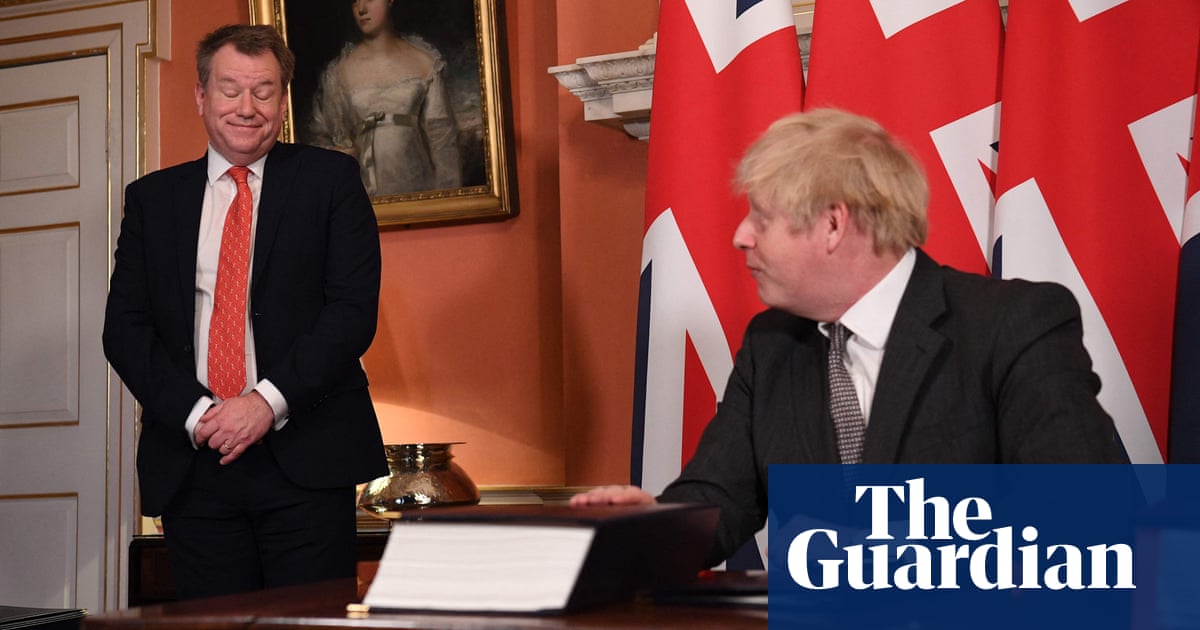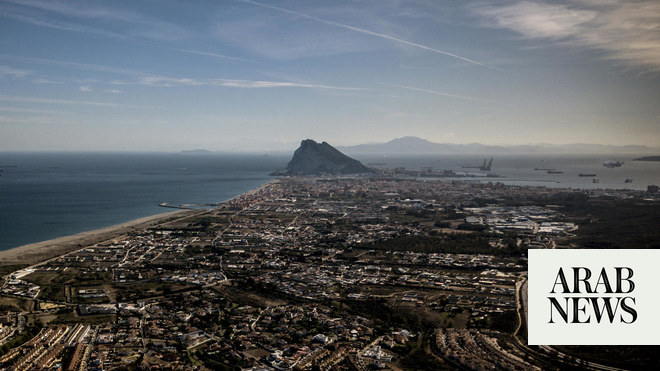
Boris Johnson is expected to push for an intervention from EU leaders in the faltering trade and security negotiations with the bloc after being warned by advisers that the current talks are on course to fail.
There is recognition on both sides of the talks that there is little prospect of agreement on the most contentious issues without a major reset of positions.
With the prime minister set to return to Downing Street on Monday, Johnson is expected to press the European commission president, Ursula von der Leyen, and EU nation governments to dedicate attention to the negotiation with the British government.
Sources suggested that there would need to be a rethink over the next fortnight in order to rescue the negotiation. The UK will leave the single market and customs union at the end of 2020, after which tariffs will be applied to the trade in goods unless there is a deal agreed.
Both sides have said they need to see progress by June, with Downing Street warning that they may need to walk away from the talks at that point to prepare solely for a no-deal outcome.
There are just two scheduled rounds of video-conference talks, and senior sources on both sides said these were not likely to deliver a deal, due to principled differences as well as the difficulties presented by the technology.
“You don’t see all the faces of the people around the table; you don’t see the body language, you cannot have discussion in the margins”, an EU official said. “But having said that, this is how we are working now; we need to make the best of it.”
The EU’s chief negotiator, Michel Barnier, and his British counterpart, David Frost, came out fighting from last week’s round of talks on the future relationship, only the second since the UK left the EU on 31 January.
Barnier accused the UK of not engaging with key issues of particular importance to the EU, including access to British waters for European fishing fleet and the so-called level playing field conditions to ensure neither side can undercut environmental, labour and social standards.
EU sources added that UK officials “listened politely” to their proposals but did not seek to negotiate on them. “I regret it, and this worries me”, Barnier told reporters at a press conference at the end of last week’s talks.
The British negotiating team has rejected the claim, instead questioning the value of the deal being proposed by Brussels, which would tie the UK to EU regulations while also constructing significant non-tariff barriers on trade.
Whitehall sources said there was a difference between not engaging and simply disagreeing with the EU approach. There is a particular frustration on the UK side that the EU has rejected proposals to remove unnecessary technical barriers to trade, including some sanitary and phytosanitary checks on animal products, despite British commitments to maintain high standards and there being precedent in previous trade deals.
On security cooperation, the UK has argued in the negotiating room that the EU’s offer is based on existing deals but comes with unprecedented obligations, including a direct role for the European court of justice in dispute settlements: a red line for Downing Street.
Two areas in which there have been better talks are civil nuclear cooperation and UK involvement in EU programmes. “The UK has expressed interest in participating in [the research and science programme] Horizon, for example”, said an EU official. “So there’s certainly some useful discussions ongoing in this area.”
However, there is growing concern about the UK’s implementation of the Northern Ireland protocol in the withdrawal agreement, which was designed to avoid a border on the island of Ireland.
The protocol requires checks on goods passing from Britain to Northern Ireland. “You need to have customs checks on goods arriving in Northern Ireland, veterinary controls, a VAT system needs to be put in place”, said an EU official.
The two sides are expected to have a stock check on 30 April at the next meeting of the joint committee, the body established to ensure implementation of the provisions in the withdrawal agreement.
Frost has ruled out an extension of the transition period. The UK believes there is ample time to agree and ratify a free-trade deal if the EU changes its position.












